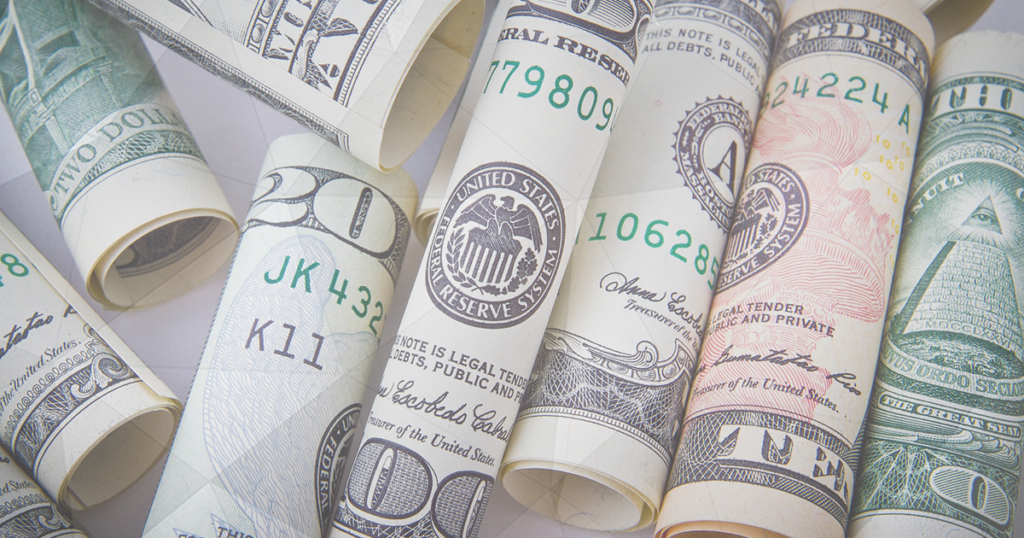Secret Practices to Watch out for with Your Broker

Back in 2007, the retail Forex industry was valued at around $190 billion.
In 2018, that number more than doubled to reach a stunning $400 billion.
There are millions of traders worldwide with an average retail trading account of around $8,000.
Given these sums, it’s reasonable to assume that not all firms involved in the Forex industry are playing fair and in the sole interest of their clients.
In this article, we’ll expose some secret practices performed by low-quality Forex brokers and show you how to identify and avoid them.
- Fast track your learning, take the course: Understanding Brokers
What Does a Broker Do?
Brokers play an important role in financial markets. They act as an intermediary between individual traders and investors on one side and the market on the other side. More precisely, brokers match buying orders with selling orders at the best available price, reducing market and opportunity costs.
In the Forex market, brokers charge a small fee for their services in the form of spreads or commissions. The spread is simply the difference between the bid and ask exchange rate, while commissions are calculated as a small fee depending on the position size (e.g. $0.5 per 1 standard lot).
However, spreads are often used as a tool by brokers to make a profit on their clients by a practice called spread-widening and slippage, which will be discussed further below.
Not all brokers follow the same model when matching buy and sell orders. Some of them act as market makers, which basically means that they create the market and act as the counterpart of their clients’ trades. Others use the service of one or more external liquidity providers and follow an STP/ECN model, which ensures the best possible prices for their clients, at least in theory.
Finally, some brokers combine the market-maker model with external liquidity providers to take the most advantage of their traders.
Recommend Reading:
- A New Traders Guide to Choosing a Broker
- Getting to Grips with a Broker’s Platform
- Complete Beginners Guide to Trading Forex
Main Types of Brokers
Before we dig deeper, let’s take a more detailed look at the main types of brokers and how they can impact your trading performance. We’ll also answer the question of “How do Forex brokers make money?” and whether your loss is their profit.
Market Makers
Market makers are dealing desk brokers which create the market for their clients. They’re the counterpart of all Forex trades that their clients make.
If you’re selling a currency pair, a broker that operates like a market maker is buying, and vice-versa. Market makers are able to offer fixed spreads, as they’re not impacted by exchange rates of external liquidity providers. However, most market makers feature rates that are very close to actual interbank rates.
The main problem for traders who trade with market makers is the evident conflict of interest. Brokers that operate as market makers make a profit when their traders lose, which means that they don’t really have an interest in the profitability of traders. If the broker is unregulated, there is a high chance that stop-hunting and artificial slippage will actually prevent a profitable trader with a large trading account of making any profits on the market.
Read: 16 Main Currency Pairs You Should Know About
ECN/STP Brokers
These types of brokers act as a platform that connects various types of market participants. Basically, when you send an order to a broker that operates as an ECN/STP, the broker’s role is to forward the order to a pool of liquidity providers in order to match your order with the best available counter-order.
The platform connects hedge funds, commercial banks, commercial companies, investors, traders and other participants in an attempt to make the matching of orders more efficient. While ECN/STP brokers look like a good option for Forex traders, problems arise when those brokers have only one liquidity provider or separate their clients’ orders into A-Books and B-Books, which will be discussed further below.
Read:
- Beat the Markets: How to Find a Forex Trading Mentor
- What Types of Customer Support do Brokers Offer?
- Which Markets do Brokers Offer?
How Brokers Try to Take Advantage of Their Clients?
Since both market makers and poor-quality ECN/STP brokers can have a conflict of interest with their clients, some brokers are involved in fraudulent activities which are not in the best interest of traders. We’ve listed some of the most popular secret practices below.
#1 Market Analysis
Many Forex brokers offer market commentaries and analyses to traders who decide to open a live account with them. While this may sound like a good idea and incentivise traders to go with that broker, the market analysis offered by the broker may be deceptive.
Remember the conflict of interest between certain brokers and their clients – their market reports and trade setups could actually be written for their clients to lose money in the long run. As a trader, you shouldn’t rely on external analysis but only on your own. Don’t believe everything you read on the internet.
#2 A-Books & B-Books
Another popular practice among Forex brokers is separating their clients’ orders into so-called A-Books and B-Books. This is especially popular among brokers that try to look like they’re pure ECN/STP brokers.
Basically, a broker forwards orders of traders who are profitable in the market and have a large trading account to external liquidity providers, reducing risk if their clients’ trades turn profitable. These orders are grouped into the A-Book.
On the other side, orders of inexperienced traders who have a large chance of losing money are put into the B-Book, and the broker takes the opposite side of the trade, acting as a market maker in the end. All losses of those clients are the broker’s profit.
There are even firms that specialise in evaluating which traders have the largest chance of losing. This data is then sent to the broker, which puts all orders of those traders into the B-Book. A-Books and B-Books are a popular activity of poor-quality ECN/STP brokers.
#3 Fixed Trading Costs
Just like free market analysis and trade recommendations, some traders may be attracted by brokers that offer fixed trading costs. However, a true ECN/STP broker that acts on the interbank market would have a hard time to offer fixed spreads, since bid and ask prices fluctuate depending on the current market environment.
Most of the time, fixed spreads are a feature of market makers as these types of brokers create the market for their traders and set the bid and ask prices at their discretion.
Read:
- Choosing a Broker: Fixed vs. Variable Costs
- Situations When You Really Shouldn’t Trade Forex
- Why Day Trading Doesn’t Work (And What You Can Do About It)
#4 Stop Hunting
Stop hunting is a fraudulent strategy of some brokers that attempts to force traders out of their positions by manipulating the price. Since market makers know the exact positions where their clients have set their stop-loss levels, they can drive the price to hit levels where the majority of stop-loss orders are placed. Again, those brokers make a profit on their clients’ losses.
#5 Slippage and Spread Widening
Slippage refers to the difference between the quoted price when opening a position and the actual price at which an order has been executed. Let’s say that EUR/USD trades at 1.1300 and you want to open a buy position.
Slippage can significantly change the actual price at which your order will be executed, creating a large loss as soon as your trade is open. While slippage is a common phenomenon in financial markets, especially in times of high market volatility and important events, some brokers are creating artificial slippage to take advantage of their clients.
#6 Bonuses on Deposits
Finally, some brokers offer bonuses on deposits if you decide to open a live account with them. While this may sound attractive at first, evidence shows that traders who get a large bonus tend to open much larger position sizes than traders who don’t receive a bonus.
Think about it this way – why would a broker offer you a bonus to open a live account?
Unfortunately, the answer is quite simple – those brokers bet that you’ll lose your entire trading account, including the bonus. As said, traders who get a bonus take higher risks in the market, which leads to higher losses.
In fact, a large European regulatory agency (CySEC) prohibited brokers that are under their regulation to offer bonuses and trading incentives to new clients. The note, published in March 2017, states that,
In addition, the European Security and Markets Authority (ESMA) said,
Expert Tip: Look for the regulator and the license number on the broker’s website.
Read:
- How Brokers are Regulated Country by Country
- Complete Spread Betting Guide for Beginners
- Checklist: 5 Things to Look out for in Good Brokers
How to Protect Yourself Against Secret Broker Practices?
Most importantly, you have to know your broker.
This might be more easily said than done, since you have to open an account and trade with the broker for a while before being able to evaluate its quality. Nevertheless, try to find online trading forums, communities and reviews of a broker before applying for a live account. You can get a ton of information from clients who are already trading live with the broker.
What do these clients reveal about the speed of trade execution, slippage and withdrawal times?
If the overwhelming majority of the reviews and online posts are positive and the broker carries a high reputation in the trading community, you’re likely on the safe side.
However, even positive customer reviews can sometimes be faked and are not a guarantee of the broker’s quality. That’s why you should only trade with broker regulated by a trustworthy regulatory authority, such as CySEC and FCA. If the broker is regulated, you’ll be able to find its license number on the website. Regulation ensures that the broker follows strict industry standards and meets the capital requirements set by the regulatory authority.
In addition, your funds as a trader will be kept segregated from the company’s funds and protected in case the broker closes its doors and files for bankruptcy.
- Learn more, take our Trading for Beginners course





